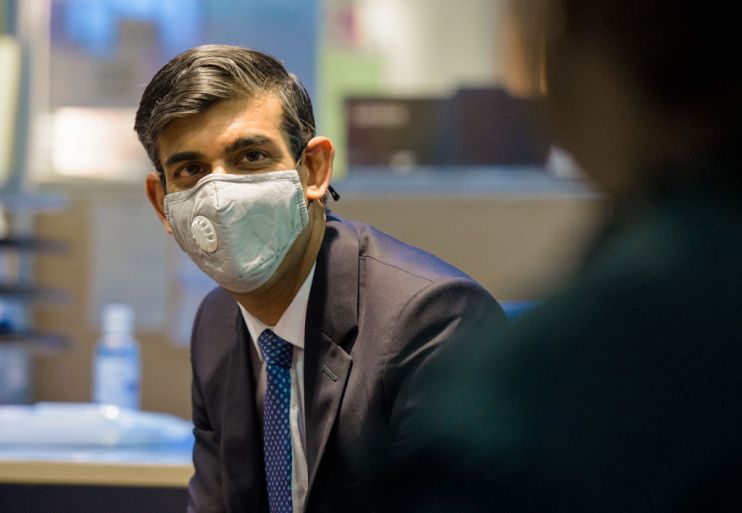Left out in the cold: The company directors who have fallen through the cracks in the Treasury’s support schemes

On Friday, the Prime Minister set out the latest steps towards reopening Britain’s economy, providing encouragement for many businesses.
Combined with the chancellor’s promise earlier this month of a half-price lunch, the message appears clear: it’s time to get going and move the economy forward again.
But as we do, the government should also take a moment to look in the rear-view mirror.
The support schemes set up in the immediate wake of the outbreak have been a success in many respects. Broadly speaking, aid got out the door fast, in substantial levels, in ways that were — for the UK at least — often completely new.
But this doesn’t mean they were flawless.
Crucially, there are a number of groups that have been repeatedly excluded from the key income support schemes. One of the largest consists of directors of small companies who take their income in dividends.
This is no small group either. While exact figures are difficult to deduce, estimates suggest there could be around 700,000 people in this bind.
People in this situation are often misguidedly stereotyped as “fat cat” directors, but this is neither accurate nor fair. Many poured their savings into starting their own business, and for some it takes years before they make any serious money — if indeed it ever happens. In many cases, they have seen demand for their products or services all but dry up, with little certainty of a rebound on the horizon.
So why have they been left out of government support packages? The problem arises because, from the Treasury’s point of view, these people find themselves in a bit of a grey area. Many in this category, if they don’t employ anyone else, look quite a lot like the self-employed. They are entrepreneurs, but they don’t fit the popular perception of the tech founder that word often conjures.
And, it has to be acknowledged, that they are often looked at slightly askance because of the different tax treatment of dividends, which are taxed at a lower rate than income from a salary.
Dividends can only be taken out of profits. Small company directors often take their income this way as they have no idea how their business will do from one year to the next. This isn’t trying to excite pity: people do this because they want the freedom of being their own boss, and the opportunity to build something that is theirs. But it’s important to understand that taking dividends rather than a salary is not primarily a tax-dodging exercise.
The difficulty is that the dividends company directors pay to themselves aren’t differentiated on tax returns from dividends made through stock portfolios — and the government understandably doesn’t want to subsidise the latter. Due to this technical hitch, small company directors have been locked out of the support schemes.
In our view, this practical issue should not have been insurmountable. Through various company documents, HMRC could secure a paper trail identifying whether a dividend recipient was a business owner in need — and deserving — of government support.
However, despite raising this with the government in March, and providing evidence and case studies of some really desperate directors, the answer has been “we hear you, but we just can’t do it”. Affected directors have been coming out in large numbers and trying to organise, but nothing has moved the political dial.
But it isn’t too late. If there really can be no movement on dividends, a simple recovery grant scheme could be rolled out quickly. This should target those who have fallen through the cracks of the various support schemes, addressing not just the dividends issue but also, for instance, firms that pay rent (for example in shared spaces) but haven’t been able to access business rates grants.
This wouldn’t be a perfect solution — it would be cutting the Gordian knot, but in an unsatisfying way. Nonetheless, it could go some way to addressing a very real and pressing problem for hundreds of thousands of people.
Up until now, the chancellor has made a virtue out of continually refining the Treasury’s response to the crisis. Even as we look to the next phase of our recovery, he can’t stop now.
Main image credit: Getty